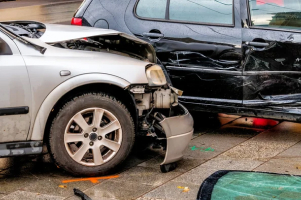
Car accidents are a common occurrence on our roads. Every day, countless vehicles collide for various reasons. These incidents disrupt daily lives and could result in catastrophic injuries or wrongful death. To avoid such accidents, it's crucial to understand their primary causes. Distracted driving, drunk driving, and drowsy driving are major causes of motor vehicle accidents.
Understanding what leads to these mishaps can help in promoting safer driving habits. At Ryan LLP, we have worked with countless victims of traffic accidents. We believe that by understanding the causes of car accidents, it might be possible to prevent car crashes from happening. This includes avoiding potentially fatal accidents. Learn more about the causes of fatal car accidents below. Then, give us a call to schedule a case consultation.
Car accidents happen with alarming frequency. In the U.S., millions of motor vehicle collisions occur annually. Many result in injuries, while some sadly lead to fatalities. To illustrate, the Insurance Institute for Highway Safety reported that close to 43,000 people were killed in car accidents in 2021 alone. The NHTSA estimates that a similar number of people were killed in car accidents in 2022. These stats highlight the pressing need for road safety awareness. By focusing on the causes of car accidents, such as ignoring the speed limit on the highway, it might be possible to save lives on the road.
Humans, by nature, are prone to making errors. When driving, a single mistake can have devastating consequences. Human factors contribute to a significant portion of car accidents. Often, the cause lies in poor decision-making or distractions. These are usually categorized under driver error.
While technology continues to advance, making cars safer, human errors remain a challenge. These errors range from texting while driving to driving under the influence. Distracted drivers are among the most common causes of serious car accidents. It's essential to be aware of these factors and actively work to minimize them. This could prevent a motor vehicle accident from happening. Even a rear-end collision can be serious.
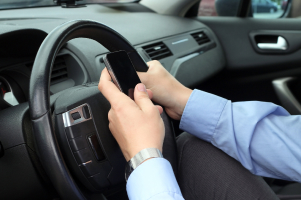
Distractions can lead to a serious motor vehicle crash. With the rise of technology, the number of distractions has also surged. Distracted driving can be due to:
The simplest way to prevent distracted driving is to stay focused. Drivers should dedicate their full attention to the road. Avoid multitasking, and always prioritize safety. Car accident victims should remember that they do not have to face this situation alone. At Ryan LLP, it would be our honor to help you.
Driving under the influence poses significant risks. Two main culprits are:
To keep roads safe, always have a designated driver if you want to drink. Remember, the consequences of impaired driving can be fatal.
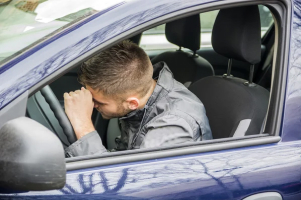
Driving while fatigued poses the same risks as driving while drunk. Major reasons include:
It's essential to recognize signs of fatigue. If you feel tired or drowsy, it's better to pull over and rest before continuing.
Environmental factors play a significant role in accidents. External conditions can drastically affect road safety. Sometimes, even the most cautious driver can't prevent a mishap due to environmental causes.
Weather patterns are unpredictable. They can change rapidly, leaving drivers unprepared. Understanding the impact of different weather conditions on roads is crucial for safe driving.
Weather conditions often impact road visibility and traction. The main culprits include:
Adjusting driving habits according to weather conditions is essential. Slow down, increase the following distances, and ensure all lights are functioning.
The condition of the road itself can lead to accidents. Some of the most common roadway issues that could contribute to an accident include:
Staying alert and following posted signs can help navigate these challenges. Always be on the lookout for any changes in road conditions.
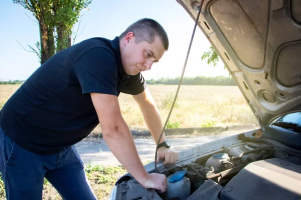
Vehicle-related factors can cause or exacerbate accidents. While driving, the car's condition is as vital as the driver's state. Malfunctions can happen unexpectedly, turning a regular drive into a nightmare.
Yet, many of these incidents are preventable with regular maintenance. Staying proactive in checking and servicing your car can prevent many accidents. Be sure to take your car to the shop for routine maintenance.
Unexpected mechanical failures can lead to accidents. A few common examples of mechanical issues include:
In case of a failure, try to remain calm. Safely pull over, turn on hazard lights, and seek assistance.
Neglecting vehicle maintenance can be dangerous. Two main areas of concern are:
Always ensure your vehicle is in top shape. Regular check-ups can prevent many vehicle-related accidents.
Speeding is a common cause of accidents. It reduces the driver's ability to steer safely around curves and objects. Moreover, the faster you drive, the less time there is to react.
Reckless driving isn't just about speed. It encompasses a range of unsafe driving behaviors. Recognizing and avoiding them can significantly reduce accident risks.
Driving at excessive speeds is a prevalent issue. The faster a car moves, the less control a driver has. Additionally, the severity of an accident increases with speed.
High speeds reduce reaction times. Even a skilled driver might not have enough time to react to unforeseen road events. Staying within speed limits and adjusting to road conditions is essential.
Aggressive driving endangers everyone on the road. Some common aggressive driving behaviors that could contribute to an accident include:
Staying calm and courteous on the road is essential. Avoid confrontations and always prioritize safety.

Experience plays a significant role in driving safely. Inexperienced drivers might not recognize or react appropriately to hazardous situations. They may also lack the skills required to navigate complex road scenarios.
Driving is a skill that improves over time. New drivers should approach the road with caution, aware of their limitations.
Teen drivers face unique challenges. It is not unusual for teenagers to be involved in a crash. A few reasons why include:
Teens need to receive proper driver's education. Parents should also set clear rules and expectations for their driving teens.
As drivers age, certain challenges arise. Some of the reasons why older adults could be involved in car crashes include:
Regular health check-ups and adapting driving habits can help older drivers stay safe.
Intersections are hotspots for accidents. Many drivers make errors related to right-of-way rules. These mistakes can lead to dangerous collisions.
Knowing and respecting traffic rules is essential. This understanding can prevent many intersection-related accidents.
Not yielding when required can lead to side-impact collisions. Always be aware of signs and signals at intersections. Give way when it's not your turn.
Ignoring traffic signals is a major risk. If you ignore a stop sign or stop light, you could be involved in a serious accident. Always respect traffic signals and look out for other vehicles.
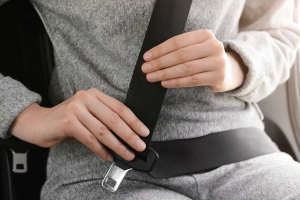
Seatbelts save lives. Yet, many drivers and passengers neglect this simple safety measure. Similarly, child safety seats are essential for young passengers.
Every trip, no matter how short, requires seatbelt use. Ensuring everyone is buckled up can prevent many injuries.
Seatbelts prevent passengers from being thrown from the vehicle during a crash. They also distribute the force of the impact, reducing the risk of injury. Everyone should wear their seatbelt.
Children require special seats designed for their size and age. These seats protect young passengers better than regular seatbelts. Always ensure children are in the appropriate seat for their age and size.
Some accidents result from unexpected factors. These can range from wildlife to sudden medical events. Being aware of these can help drivers react appropriately.
Animals can suddenly appear on the road, especially in rural areas. Collisions with large animals can be dangerous. Always be vigilant, especially during dawn and dusk.
Unsecured loads can fall from vehicles, creating obstacles. This debris can lead to collisions. Ensure all loads are secure before driving.
A driver might suffer a sudden medical event, like a heart attack. This can lead to uncontrollable vehicles. If you feel unwell, it's best not to drive.
Accidents have a range of consequences. Some of the top consequences include:
You could suffer a variety of injuries in a car crash. Some are minor scratches, but others could include bone fractures or internal organ damage. In the worst cases, accidents can be fatal. Always prioritize safety to avoid these tragic outcomes.
Collisions often lead to damaged vehicles and property. Repair costs can be hefty, leading to financial strain.
Accidents can leave emotional scars. Victims might experience anxiety, PTSD, or fear of driving again.

Seeking legal counsel is crucial if you or a loved one is involved in a car accident. Ryan LLP has extensive experience in handling car accident cases. We can guide you through the process, ensuring you get the justice and compensation you deserve. We will strive to secure a fair settlement on your behalf.
Car accidents are traumatic events. With the right legal team by your side, navigating the aftermath becomes more manageable.
Reach out to us today for compassionate, skilled, and dedicated legal assistance.